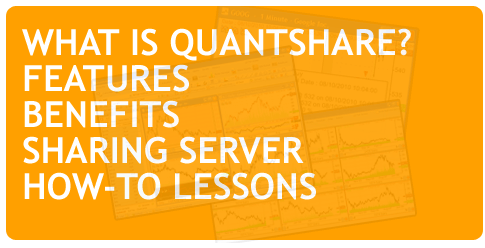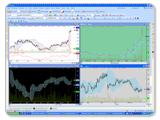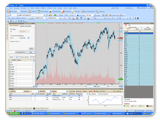 Not all downturns spell bad news for investors. In fact, what separates savvy investors from mediocre ones is their ability to spot opportunities when others are seeing blood. That’s what mostly happens during a stock market correction. What is a Stock Market Correction? A market correction is a short-lived decline of stock prices following a period of market strength. There will come a period in a stock market cycle when stocks moves rapidly up with large gains until it reaches a point where stock market analysts and investors deem the market as “overvalued”. In such instances, a correction is most likely underway. Stock market is always known for its irrational fluctuation from time to time. This is because no matter how sophisticated investing strategies may become, humans still control the stock market. And no matter how far we may like to think we’ve come to controlling our emotions, it may still sneak up on us and gets in the way from time to time. The most prominent emotions are greed and fear. Under the sway of these emotions, you will see markets rise above its intrinsic value and slump just as fast for a correction. Those who can’t rise above their own emotions will be caught in this very vicious stock market cycle, which has rendered many investors bankrupt – or wealthy. Stock Market Corrections are Filled with Opportunities – Here’s Why Stock market corrections also happen to be the best time to go stock shopping. To completely illustrate my point, say for example you’ve been wanting to purchase an ice cream company that has been making reported annual sales of $500,000 and running a very profitable operation. This ice cream company sells wasabi ice cream, which happens to be the latest rave in town. Every day, an investment banker representing the company offers to sell you a portion of the company for what he believes is its worth on any particular day. Say, on Monday, the company was featured in a well-known food magazine and sales increased that day so the banker offers to sell half of the company for $1 million; you refused. Then, on Wednesday, Oprah herself raves on how much she loves that company’s ice cream. Again, the banker came and offered half of the company for $2 million; once again, you refused since there’s no indication that current rising sales will continue and you believed it’s always a folly to overpay for a business – even something as excellent as this ice cream company you’ve been eyeing. And then on Saturday, a group of health enthusiasts publicly announced that they’ll stop eating ice cream. As expected, the investment banker came; but this time with a worried look in his face. He offers half the company for $50,000 concerned that the company will soon lose its value following the group’s announcement. You, finding it illogical that the company would lose its value due to the group’s announcement (a group that’s not even the target market of the ice cream company in the first place), instantly grabbed the deal knowing that you’re buying a well-run company at a fraction of its intrinsic value. You might be thinking that the example is such an extreme scenario. It may well be; however, the stock market’s price can move in exactly the same fashion. Some days, it will rise as if there’s no tomorrow, some days it will plummet and people giving way to their fears immediately sells. As long as the company still has top management on its helm and its fundamentals are sound, it’s illogical to think that temporary and minor setbacks could get in the way of long term profits. Think of it this way, major corporations have definitely experienced setbacks in its history. Early this year, we’ve seen Coca Cola’s (KO) share price drop to $30. However, in a matter of months, rose up to as much as $40 per share. That’s more than 30% profits right there if you’ve managed to scoop some KO stocks when it was down. The Caveat There’s an old adage that says: not everything that glitters is gold. In this case, just because the stock market will have its recurring fluctuations and cycles, doesn’t mean all individual companies will do the same. You still need to look for early signals that warn you that the company is headed for doom. If you are looking for long term profits, a close look at the company’s fundamentals will definitely help. Stock market corrections are the best time to buy solid, blue chip companies that’s poised for long term growth. And while everyone is distracted by all the noises, you could be well on your way to future riches if you manage to do this. comments powered by Disqus |

|
|
|
|







